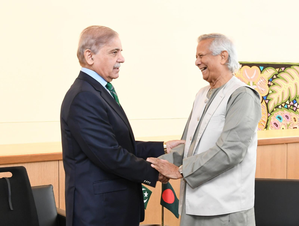New Delhi, July 15 — Tensions are rising in Bangladesh as the interim government led by Nobel laureate Muhammad Yunus intensifies its crackdown on dissenting voices, with the recent arrest of noted economist Professor Abul Barkat drawing widespread condemnation.
Barkat, 71, a former Janata Bank chairman and long-time advocate for minority rights, was arrested on July 10 by Dhaka’s Detective Branch in connection with a 297 crore Taka embezzlement case linked to Annontex Group. His bail plea was denied amid fears he could interfere with the investigation.
Analysts believe Barkat’s arrest may be politically motivated due to his extensive research exposing the displacement and persecution of Bangladesh’s Hindu minority. His landmark studies revealed that over 11.3 million Hindus left the country between 1964 and 2013, with up to 767 leaving daily during some periods.
Barkat has also been a vocal critic of radical Islam and the Jamaat-e-Islami (JeI). His recent publication, The Political Economy of KHAS Land in Bangladesh, highlighted systemic land grabs targeting Hindu communities, drawing the ire of extremist groups. He has received death threats since 2004 for his work on fundamentalism.
Human rights activists allege the Anti-Corruption Commission (ACC) is being used by Yunus as a tool to suppress opposition voices, academics, and minority defenders. Critics warn that the situation mirrors West Pakistan’s tactics before the 1971 Liberation War.
The arrest comes amid a worrying surge in violence. Dhaka recorded 136 murders from January to April 2025, more than double the previous year. The gruesome killing of businessman Lal Chand on July 10 further underscores the deteriorating law and order.
With media gagged and civil society under siege, Bangladeshis fear Yunus’s regime is turning into a totalitarian state—far from the democratic change many had hoped for.












